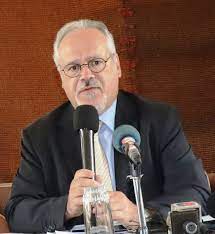Niger’s military leadership has expelled the French ambassador, Sylvain Itte, from the country.
This comes amid mounting tensions between the west African country and its international partners.
Itte was ordered to leave the country within 48 hours.
In a statement on Friday, Niger’s foreign ministry said the decision to expel the ambassador stemmed from his refusal to honour an invitation.
Niger crisis: We Are not being teleguided by foreign powers – ECOWAS
Subsidy: Run Your vehicles on CNG before advising Nigerians, SDP’s Adebayo tells Tinubu
According to the statement, “other actions by the French government contrary to the interests of Niger” led to the ambassador’s withdrawal.
However, the foreign ministry did not provide details.
The junta had accused French forces of freeing captured “terrorists” and breaching a ban on the airspace in an attempt to destabilise the country.
The country’s military had also accused the Economic Community of West African States (ECOWAS) of aligning its troops with a foreign entity whom it did not mention.
Niger, a former French colony, was France’s partner before last month’s coup in the fight against jihadi violence.
Niger’s junta also authorized troops from neighbouring Mali and Burkina Faso to come to its defense, raising the stakes in a stand-off with other West African nations who are threatening to reinstate ousted President Mohamed Bazoum.
The junta leader, General Abdourahmane Tchiani, signed two executive orders authorizing the “security forces of Burkina Faso and Mali to intervene on Niger territory in the event of aggression,” senior junta official Oumarou Ibrahim Sidi said late on Thursday, after hosting a delegation from the two countries in the Nigerien capital, Niamey.
Sidi did not provide further details about the military support from the two countries whose military regimes have said any use of force by the West African bloc ECOWAS against Niger’s junta would be treated as an act of war against their own nations.
Before last month’s ousting Mr Bazoum, Niger was seen as the West’s last major partner against jihadi violence in the Sahel region below the Sahara Desert, which is rife with anti-French sentiment.

 Join Daily Trust WhatsApp Community For Quick Access To News and Happenings Around You.
Join Daily Trust WhatsApp Community For Quick Access To News and Happenings Around You.


